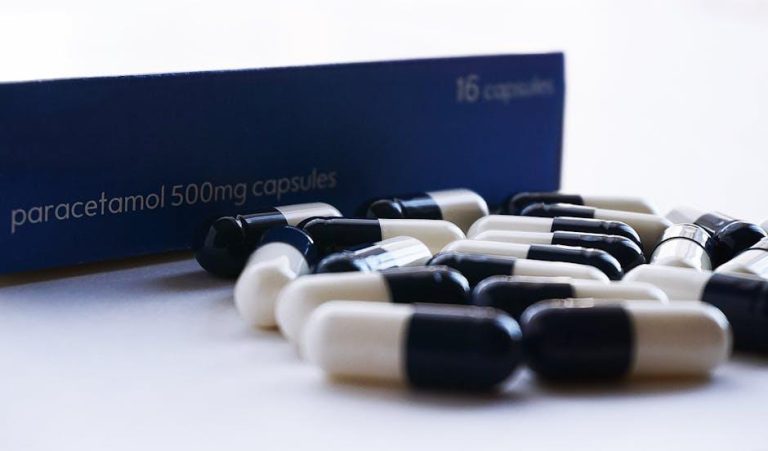
Non-Opioid Pain Relievers Beat Opioids After Dental Surgery – Rutgers University
Dental surgery often leads to significant postoperative pain, driving many patients and healthcare providers to rely on opioid medications for relief. However, a groundbreaking study from Rutgers University revealed that non-opioid pain relievers not only provide effective pain control but also come with fewer risks compared to opioids. This discovery marks a pivotal shift in postoperative dental pain management, signaling safer and more effective alternatives are available.
Introduction: The Opioid Problem in Dental Pain Management
Opioids have long been prescribed to manage moderate to severe pain after dental procedures such as wisdom teeth extraction, root canals, and periodontal surgeries. Despite their effectiveness, opioids carry substantial risks—including addiction, overdose, and adverse side effects. The opioid epidemic has highlighted the urgent need for alternative pain control methods that are both safe and effective.
The latest research from Rutgers University contributes valuable insight, showing that non-opioid pain relievers can surpass opioids in managing dental surgery pain without the associated drawbacks.
Rutgers University Study: Key Findings
Rutgers researchers conducted a detailed clinical study comparing the efficacy of non-opioid analgesics versus opioids in patients undergoing dental surgery. Participants were randomly assigned to receive either non-opioid medications—such as ibuprofen and acetaminophen—or opioid drugs like codeine or hydrocodone.
The study’s findings emphasized:
- Superior Pain Relief: Patients using non-opioid pain relievers reported equal or greater pain reduction than those on opioids.
- Fewer Side Effects: Non-opioid users encountered fewer nausea, dizziness, and drowsiness incidents.
- Reduced Dependency Risk: No signs of opioid dependency or misuse were observed among patients treated with non-opioid regimens.
Summary Table: Non-Opioid vs. Opioid Pain Relievers (Post-Dental Surgery)
| Criteria | Non-Opioid Pain Relievers | Opioid Pain Relievers |
|---|---|---|
| Pain Relief Effectiveness | High | Moderate to High |
| Common Side Effects | Mild (e.g., upset stomach) | Drowsiness, nausea, constipation |
| Risk of Addiction | None | High |
| Availability | OTC and prescription | Prescription only |
Benefits of Choosing Non-Opioid Pain Relievers After Dental Surgery
Adopting non-opioid pain medications for dental postoperative care has many advantages:
- Effective Pain Control: Non-opioids such as NSAIDs (ibuprofen, naproxen) and acetaminophen are proven to reduce inflammation and pain effectively.
- Lower Risk Profile: Minimal side effects and zero abuse potential make them safer for all patients, including adolescents and those with a history of substance use.
- Accessibility: Many non-opioid options are available over the counter, offering convenient and timely pain management.
- Cost-Effective: Typically, non-opioid medications are more affordable and do not require frequent medical visits for prescription refills.
Practical Tips for Managing Dental Pain with Non-Opioid Medications
To optimize pain relief after dental surgery using non-opioid medication, consider the following recommendations:
- Follow Dosage Instructions: Taking ibuprofen or acetaminophen at recommended intervals helps sustain consistent pain control.
- Combine Medications Carefully: Alternating acetaminophen with NSAIDs can enhance pain relief without increasing side effects—but always consult your dentist or doctor first.
- Use Adjunctive Measures: Employ ice packs, rest, and elevation to reduce swelling and discomfort.
- Communicate with Your Healthcare Provider: If you experience persistent or worsening pain, reach out promptly for reassessment.
Case Study: Patient Experiences With Non-Opioid Pain Management
One patient, Emily R., underwent wisdom tooth extraction and followed a pain relief regimen recommended by her Rutgers-affiliated dental clinic. She described her experience as follows:
“I was worried I’d be in a lot of pain, but my dentist suggested ibuprofen and acetaminophen instead of opioids. The pain was manageable, and I avoided the fogginess and nausea I’ve heard about with opioids. I felt alert and recovered quickly without any complications.”
Emily’s experience echoes many patients who find non-opioid approaches support a smoother recovery with less risk.
Why This Research Matters: Changing the Narrative Around Dental Pain Relief
As opioid misuse continues to be a public health crisis, findings from Rutgers University contribute to a crucial paradigm shift in medical and dental communities. The research underlines that opioids are not the only answer to dental surgery pain—and often not the best one.
This evolving understanding encourages dentists to rethink prescribing habits, benefits patients by reducing the chance of addiction, and ultimately supports broader efforts to combat opioid dependency.
Conclusion: Embracing Safer Alternatives After Dental Surgery
The Rutgers University study unequivocally demonstrates that non-opioid pain relievers outperform opioids in controlling pain after dental surgery safely and effectively. Patients, dentists, and healthcare providers should feel confident in prioritizing these non-addictive medications to promote faster recovery, lessen side effects, and reduce the overwhelming risks tied to opioid use.
If you are facing dental surgery soon, discuss non-opioid pain management options with your dentist or doctor to explore strategies that fit your health needs without compromising your safety.
For more information on pain management alternatives after dental procedures, visit the Rutgers University News Portal.


